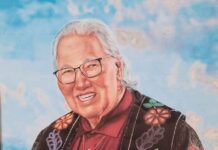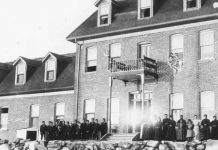

Painful Stories are the Oral History of Residential Schools
TORONTO – Ontario Regional Chief Stan Beardy supports a decision of the Ontario Superior Court to allow residential school survivors the choice of preserving records of their testimony for future generations. “I fully support the residential school survivors in their decision for discretion in their testimony and their overall bravery to share their heart-wrenching stories,” stated Ontario Regional Chief Beardy.

“It is vital that we preserve these testimonies of the survivors for future generations so we don’t forget this dreadful chapter of racism and genocide in our country’s history.”
Ontario Superior Court Justice decided last week that during the 15-year retention period, survivors can choose to have some of their documents spared from destruction. These documents would be redacted to protect the privacy of others and then transferred to the National Research Centre for Truth and Reconciliation.
The documents in question relate to compensation claims made by as many as 30,000 survivors of the Indian residential schools under an agreement that settled a class-action suit against the federal government. Many of the records contain heart-rending and emotional accounts of sexual, physical and psychological abuse.
“The decision empowers residential school survivors who participated in the Independent Assessment Process to determine the fate of their stories,” Regional Chief Beardy added. “These testimonies serve as the oral history of the survivors and serve as a historical account of their experiences in Indian Residential Schools.”
The head of the compensation assessment process, backed by a privacy expert, argued the material was intended to be confidential and should be destroyed once the claims are processed. Others, such as the Truth and Reconciliation Commission, called for the documents to be preserved to ensure as complete a historical record as possible.





